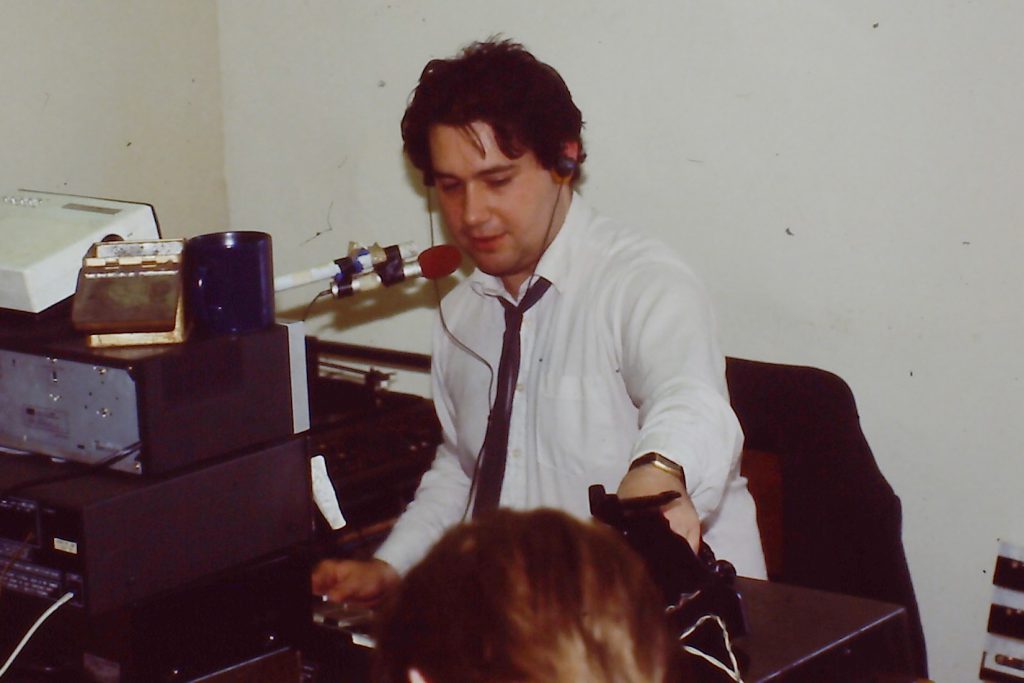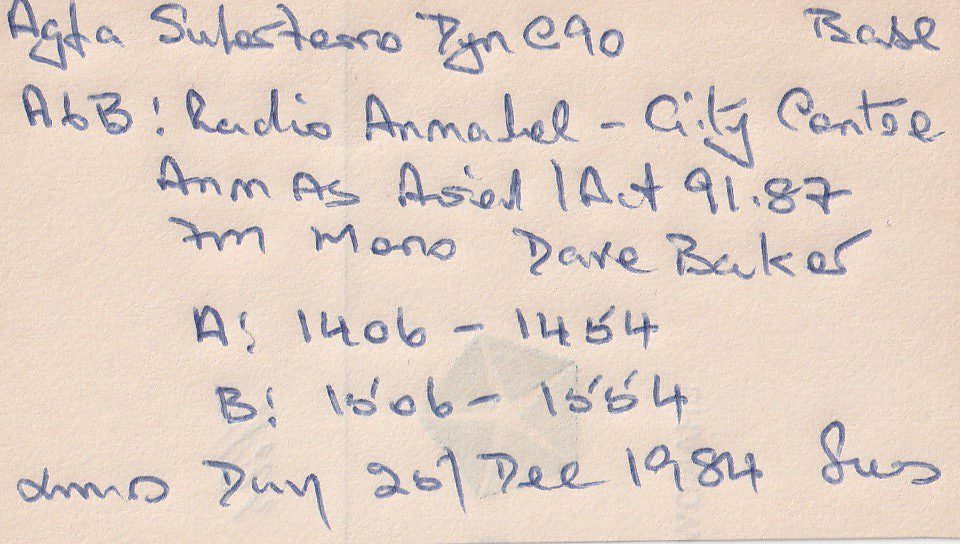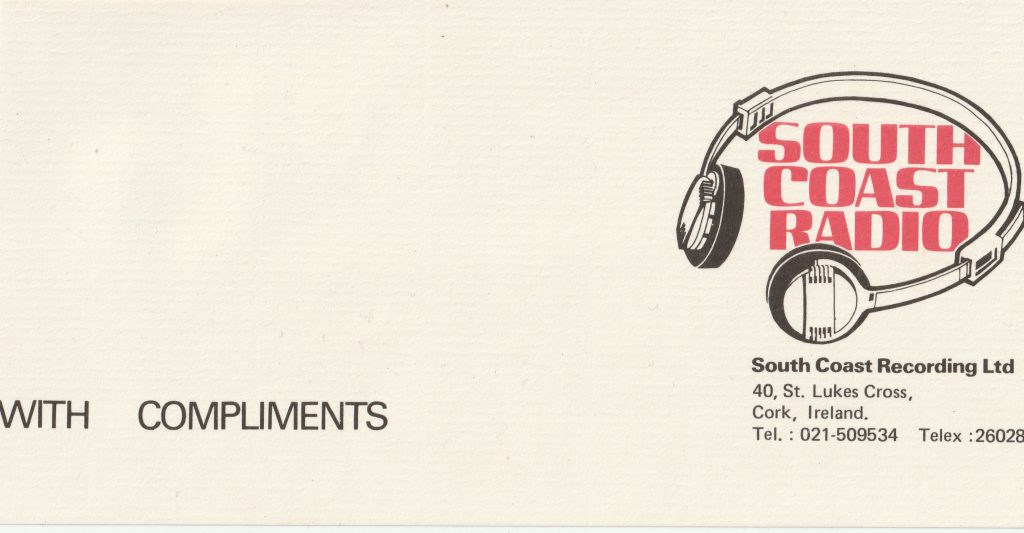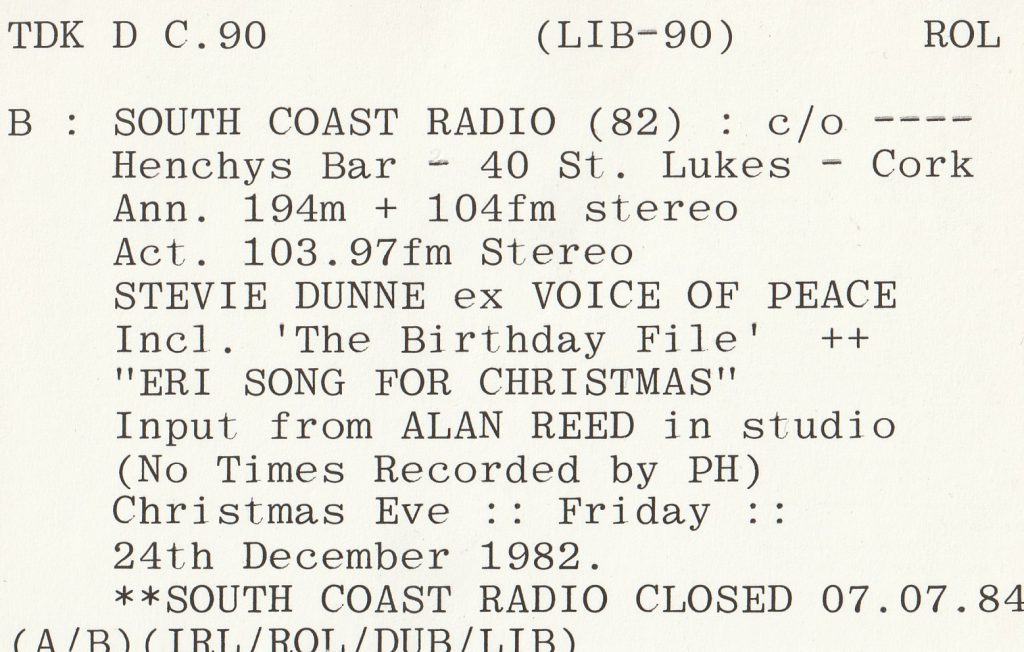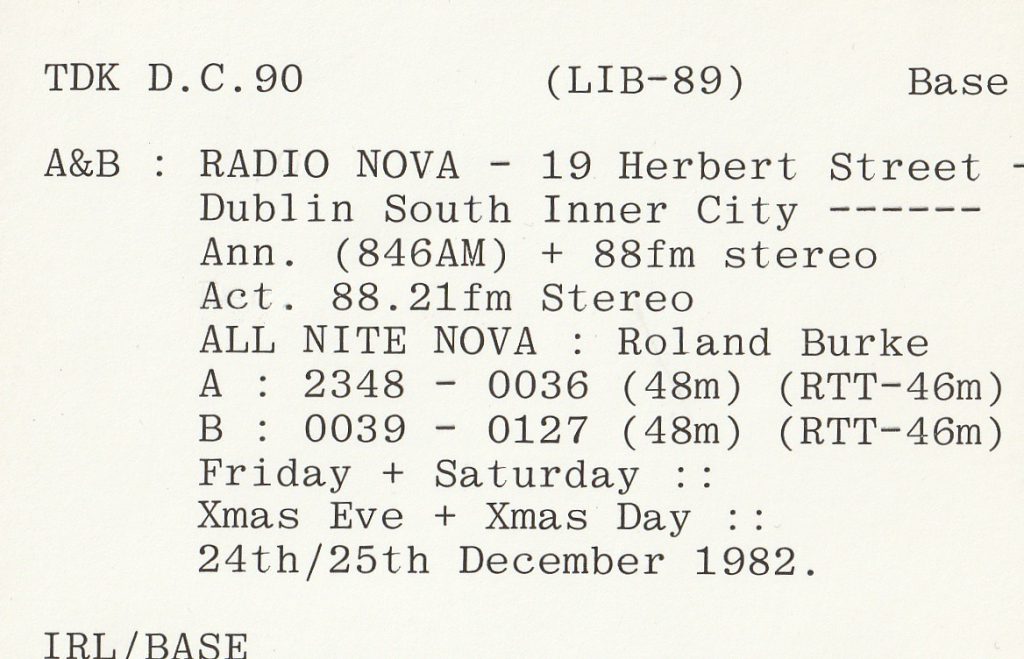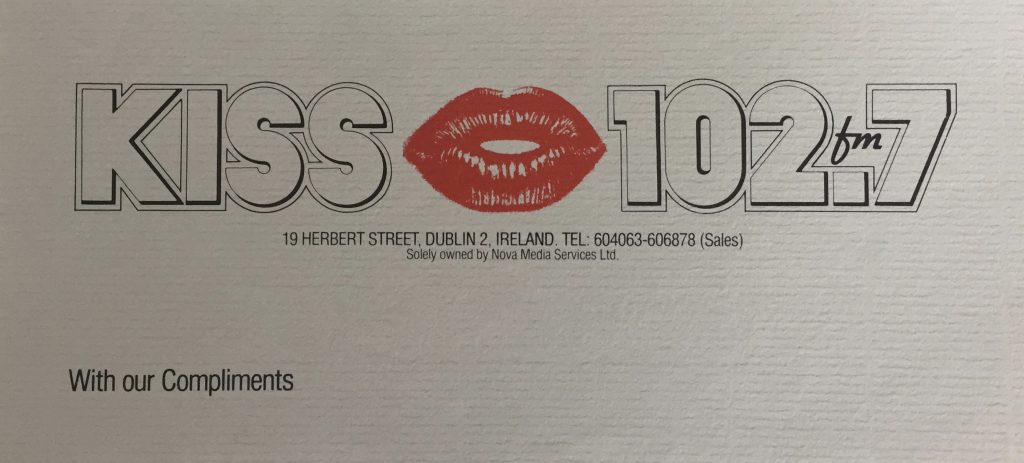Podcast: Play in new window | Download
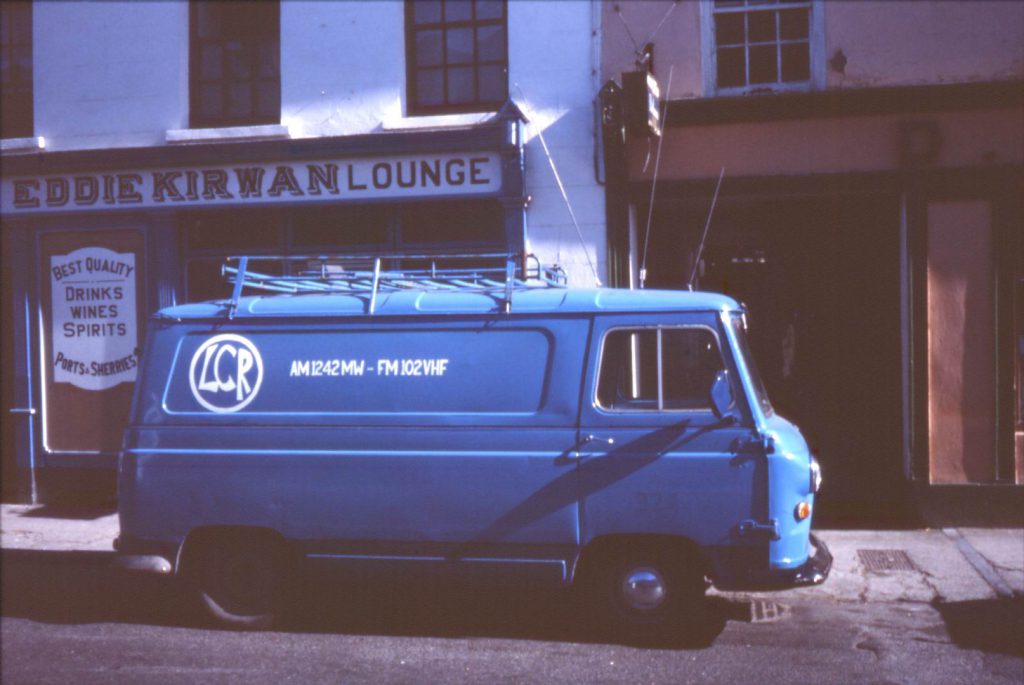
Laois Community Radio (LCR) broadcast from early 1982 for six years from the town of Mountrath, closing down on 31st December 1988 along with the vast majority of the other pirate stations. This recording was made on Christmas Day 1987 and features Jimmy Hayes with the Nashville Sound show. The music is country and bluegrass and there are Christmas requests and a promo urging listeners to support the businesses advertising on LCR. At the time, the station broadcast daily from 9am to 11pm on 1242 kHz and on 101.5 and 102 FM.

The recording was made from one of LCR’s two FM frequencies from 1713-1800 (the times on the label are incorrect) on 25th December 1987. It is from the Anoraks Ireland Tapes Collection, donated by Paul Davidson.

